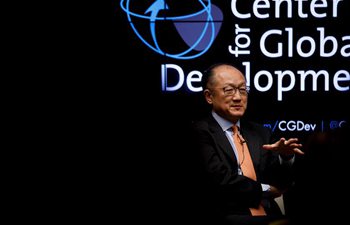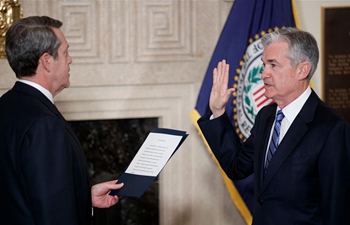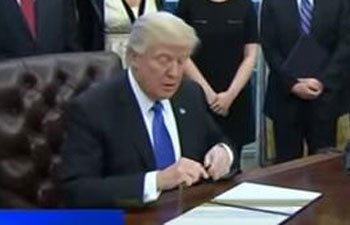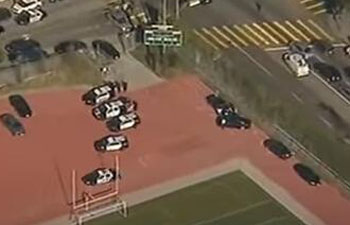by Noemi Galban
HAVANA, Feb. 7 (Xinhua) -- Washington's retrograde foreign policy towards Cuba is bound to fail, as it relies on tactics that have proven ineffective before, according to Cuban political analysts.
Wednesday marked the first gathering of a special "Cuba Internet Task Force" set up by the administration of U.S. President Donald Trump.
The White House claimed the task force aims to "examine the technological challenges and opportunities for expanding internet access and independent media in Cuba."
However, when the scheme was announced in late January, Havana noted that "in the past, phrases like promoting 'freedom of speech' and 'expanding access to the internet in Cuba' have been used by Washington as a pretext for schemes to destabilize the country."
Analysts agreed, recalling previous attempts by U.S. administrations to use social networks to undermine the Cuban leadership and sow discontent.
"Using the internet to provoke changes in the organization of Cuba and its society is nothing new," Cuban academic Iroel Sanchez told Xinhua.
Trump's predecessor Barack Obama also resorted to such tactics, though he eventually took a different track and pursued the normalization of diplomatic ties, noted Sanchez.
"The administration of Barack Obama was even the one that earmarked the most funding for that objective. We are not talking about a departure here, but a continuity of that policy," he said.
The latest initiative, presided by the U.S. State Department, seeks to marshal the power of the internet to sway key sectors of Cuban society, especially opinion makers, he said.
"We are talking about journalists, academics, private-sector workers and intellectuals, and new, perhaps more subtle means than those used by Obama," said Sanchez.
The task force is to be led by John S. Creamer, deputy assistant secretary of state for Cuba, Mexico and Central America, and comprised of non-governmental organizations (NGOs), including USAID, Freedom House and the International Broadcasting Bureau and its Office of Cuba Broadcasting, all of which a history of supporting subversive activity in the Caribbean island nation.
"What hasn't changed is the goal of changing the structure of Cuban society, its leadership in these social sectors of great importance, and convert them into a means to influence the country's political and social decisions," said Sanchez.
Randy Alonso, director of the online news website Cubadebate, agrees with Sanchez.
"The bombastic language (used to announce the task force) masks the creation and expansion of special programs to influence, subvert and confront the Cuban Revolution online ... as part of the United States' concept of non-conventional warfare," according to Alonso.
Part of Washington's argument for the task force is that Cuba has one of the lowest internet penetration rates in the world. What it doesn't mention is that that is largely due to the five-decade U.S. embargo designed to hamper the island's development.
In January, Cuba's government noted that if Washington's real goal was to improve life for Cubans, it would lift the trade embargo that prevents the island country from acquiring the latest technologies at reasonable prices.
Still, in 2017 Cuba succeeded in taking a quantum leap forward in the area of internet connection, providing access to more than 4 million Cubans through public Wi-Fi networks and other means.
"The United States manipulates reality," Alonso wrote in an article published in Cubadebate.
The Cuban government lamented Washington's return to Cold War tactics, and so did Sanchez.
"I think that once again we can see that the government of the United States is ignoring the history of its failures in Cuba," said Sanchez.
"What's more, it is severely disengaged from the reality of our country," he said.
The task force is set to meet again in October and to review its findings, then submit its recommendations to U.S. Secretary of State Rex Tillerson and Trump.













